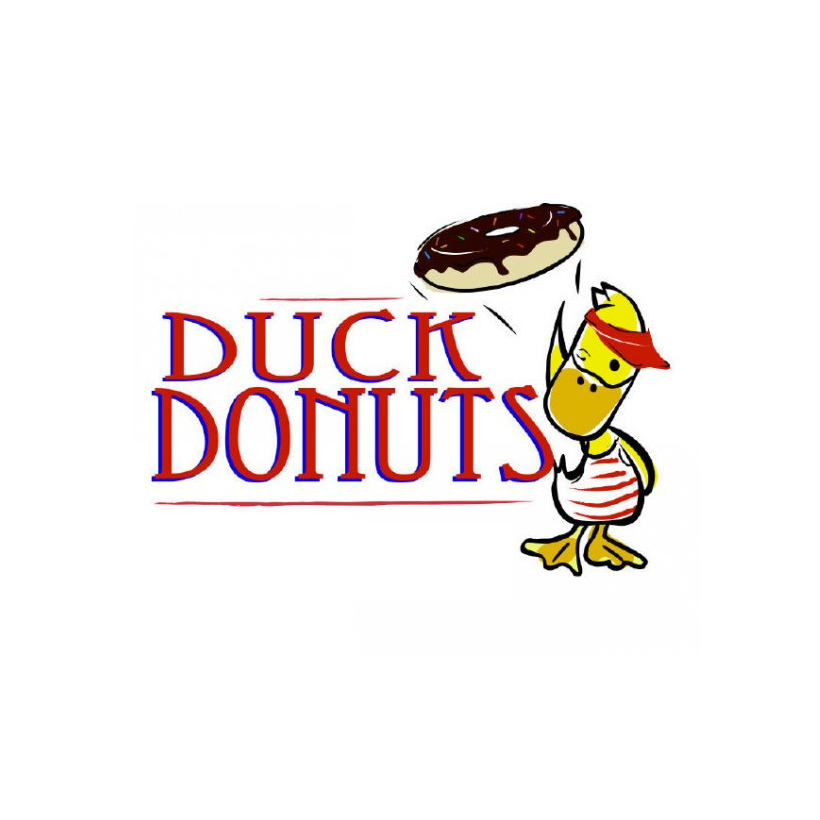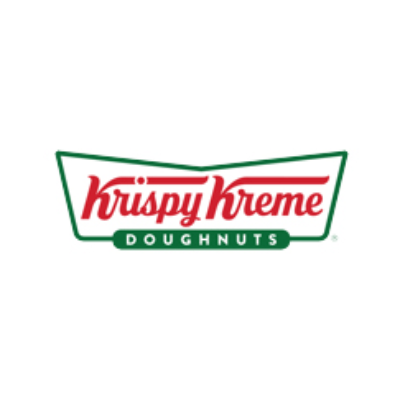Duck Donuts Franchise in 2025: Costs, Fee & FDD
Discover the secrets behind Duck Donuts’ success! From their unique made-to-order model to the financial investment and potential profits, this analysis offers valuable insights for prospective franchisees. Click to explore why Duck Donuts might be your next big opportunity!
Table of Contents:
Duck Donuts is an American-based chain store known for selling “warm, delicious, and made to order” donuts and other breakfast pastries. Originally founded in 2006 in North Carolina, Duck Donuts has since expanded to over 100 stores across the United States. Prospective franchisees will be happy to hear that Duck Donuts operates under the franchising model, meaning nearly all its stores are franchised.
Duck Donuts has experienced remarkable growth since its inception. With 133 locations currently operating in 23 states in the United States. These states include locations such as Virginia, North Carolina, Pennsylvania, and others across the East Coast and beyond. The brand has become a household name. The daily customer count averages anywhere from several hundred to over a thousand customers per day during peak times, demonstrating the consistent popularity and demand for Duck Donuts’ delicious treats. This rapid expansion is a testament to the brand’s appeal and the successful execution of its franchise model.
Duck Donuts offers comprehensive support to its franchisees to ensure their success. From initial training and development to ongoing operational support, the brand provides the tools and resources needed to build a thriving business. Franchisees benefit from a proven business model, marketing support, and access to a team of experts. Additionally, Duck Donuts is committed to giving back to the community through various charitable initiatives and partnerships.
Duck Donuts Franchise Insights
- Duck Donuts is known for its made-to-order model, allowing customers to customize their donuts with a variety of toppings and glazes, creating a unique and personalized experience.
- Profit Potential: While average gross sales can be around $554,299, net profit depends on factors like location, management, and cost control.
- The brand’s focus on fresh, high-quality ingredients and its commitment to community involvement contribute to its positive brand image and customer loyalty.
- While the donut industry is competitive, Duck Donuts’ unique value proposition and proven business model can provide a competitive advantage for franchisees.
Duck Donuts Franchise Key Indicators
Growth YOY (%)
20%
vs industry 0%
Total U.S. Franchised Units
133
3-year Failure Rate
10%
vs industry 11%
Sales-to-Investment ratio
1:1
How much does it cost to open a Duck Donuts Franchise?
Opening a Duck Donuts franchise requires a significant financial investment. The estimated cost to get started ranges from $497,000 to $706,000, but this figure doesn’t include potential tenant improvement allowances. Franchisees can typically expect to receive around $87,500 in allowances to cover renovation costs, which must be repaid to the landlord within three months of opening.
Breaking Down the Costs; a substantial portion of the total investment, roughly half, goes towards leasehold improvements to transform the store into a Duck Donuts location. In addition to this major expense, there’s a mandatory $40,000 franchise fee due upfront when signing the franchise agreement. It’s essential to remember that these are just estimates, and the actual costs can vary based on factors like location, store size, and any extra services offered.
Min & Max Investment
Opening a Duck Donuts franchise involves several key costs, which are outlined in Item 7 of the Franchise Disclosure Document (FDD). you can see a breakdown of the costs to open a Duck Donuts below from the most recent Item 7 below:
| Type of Expenditure | Minimum Investment | Maximum Investment |
|---|---|---|
| Initial Franchise Fee | $40,000 | $40,000 |
| Your Training Expenses | $0 | $2,500 |
| Premises Deposits | $2,500 | $4,500 |
| Professional Design | $8,000 | $16,000 |
| Leasehold Improvements | $270,000 | $405,000 |
| Signage | $7,800 | $13,500 |
| Furniture, Fixtures, Equipment | $110,000 | $137, 000 |
| Computer Systems | $15,000 | $20,000 |
| Initial Inventory | $7,000 | $10,000 |
| Grand Opening Marketing | $12,500 | $15,000 |
| Professional Fees | $750 | $5,000 |
| Licenses and Permits | $100 | $2,000 |
| Insurance | $3,000 | $5,000 |
| Operating Expenses / Additional Funds – 3 months | $20,000 | $30,000 |
| Total | $496,650 | $705,500 |
Item 7 in the Franchise Disclosure Document (FDD) is the “Estimated Initial Investment” section. It outlines the total costs a franchisee can expect to incur when starting a franchise, including the initial franchise fee, equipment, inventory, real estate, and other startup expenses. This section is crucial because it provides potential franchisees with a detailed understanding of the financial commitment required, helping them assess affordability and plan their investment strategy effectively.
Required capital
In addition to the initial investment, which can range from roughly $497,000 to $706,000 (excluding tenant allowances), you’ll need substantial liquid assets and a minimum net worth. Duck Donuts requires franchisees to have at least $200,000 in liquid capital, meaning readily accessible cash. This funds day-to-day operations covers unexpected expenses, and ensures the business can meet its financial obligations. Furthermore, a minimum net worth of $400,000 is typically required, demonstrating your overall financial stability and capacity to invest in the franchise.
How much does a Duck Donuts franchise owner make?
Calculating the salary of a Duck Donuts franchise owner involves analyzing gross sales to determine total revenue, assessing operational efficiency to understand profit margins, and accounting for franchisor fees and additional expenses such as rent, utilities, and payroll. Effective management of these factors can significantly impact the profitability and financial success of a Duck Donuts franchise owner. This comprehensive financial analysis helps estimate net profits, from which the owner’s salary can be derived. A clear understanding of these factors ensures accurate salary projections and financial planning for sustainable business operations.
Revenue & Gross Sales
Average annual gross sales is $548,000. Gross sales have remained relatively steady over the past couple of years for Duck Donuts franchisees.
Which key factors impact the average revenue performance of Duck Donuts franchisees?
A strong economy helps everyone, but running a great shop is just as important. Owners who are excited about the brand and work hard tend to do better. Offering new and tasty donuts and smart advertising can also bring in more customers. Plus, the overall economy and what people are spending money on matters too. When people have more money to spend, shops usually do better.
Duck Donuts Franchise Operational Costs
Running a Duck Donuts franchise involves ongoing expenses beyond the initial investment. These operational costs are essential for keeping your shop running smoothly and profitably.
- Food and Beverage Costs Ingredients for donuts, coffee, and other menu items.
- Labor Costs Wages for employees, including donut makers, cashiers, and management.
- Rent Monthly payments for the store location.
- Utilities Electricity, water, gas, and other utilities needed to operate the shop.
- Maintenance Costs for equipment repairs and store upkeep.
- Supplies Packaging materials, cleaning supplies, and other general supplies.
- Marketing Advertising, promotions, and public relations efforts.
- Royalty Fees Payments to the franchisor based on your sales.
- Insurance Coverage for property, liability, and employees.
- Technology Costs for computer systems, software, and internet services.
Duck Donuts Franchise Fees
When considering the financial commitments involved in owning a Duck Donuts franchise, it’s important to be aware of the various ongoing fees. These include:
- Royalty Fees A rate of 5% of weekly Gross Sales is applicable through December 31, 2024. Starting January 1, 2025, this fee will increase to 6% of weekly Gross Sales.
- Advertising Fees A consistent charge of 1% of Gross Sales is required to support national and local advertising efforts.
- Initial Training There is no charge for the initial training of up to four people. For any additional trainees, a fee of $500 per person is applied. Additionally, franchisees are responsible for all travel-related expenses, including transportation, lodging, and meals.
Duck Donuts Franchise Earnings
The potential earnings for a Duck Donuts franchise can vary significantly based on factors like location, store size, and management practices. On average, Duck Donuts shops generate around $548,000 in annual gross sales. However, it’s essential to remember that this is just the topline figure. After deducting operational costs, franchise fees, and other expenses, the actual profit margin for franchisees can range widely. Factors like efficient cost management, effective marketing, and strong customer satisfaction directly impact the bottom line.
Assuming EBITDA margin of 15%, we can estimate that a Duck Donuts owner makes roughly $82,000 a year. This number assumes the owner is working full time in the business. Being an owner-operator can potentially increase earnings due to hands-on involvement and reduced labor costs. Ultimately, building a profitable Duck Donuts franchise requires careful financial planning, effective management, and a deep understanding of the local market.
How to Open a Duck Donuts Franchise
Opening a Duck Donuts franchise is an exciting opportunity, but it involves several steps. Here’s a general idea of what to expect:
- Show Interest You or your franchise specialist submits an initial inquiry basic information about your interest and background. You should also conduct thorough research on the McDonald’s franchise, including seeing all of the information available on the Vetted Biz franchise intelligence platform, including access to the most recent Franchise Disclosure Document (FDD).
- Talk Money Duck Donuts will want to know if you have enough money to start a shop. They’ll look at how much cash you have and your total wealth.
- The Interview You might have a chat with Duck Donuts to see if you’re a good fit. They want to know if you share their love for donuts and if you can run a business.
- Learn the Ropes If things go well, Duck Donuts will teach you how to run a shop their way. This could include classes and on-the-job training.
- Find a Spot Next, you’ll work with Duck Donuts to find a good place for your shop. They’ll help you find a spot with lots of people around.
- Get Ready to Open Once you have a place, it’s time to get the shop ready. Duck Donuts will help you with things like design, getting the right equipment, hiring, etc.
Open Day! Finally, it’s time to open your shop and start selling delicious donuts! Duck Donuts will be there to support you and help you get off to a great start.
Pros & Cons
Pros
Established Brand: Benefit from a well-known brand with a loyal customer base.
Support System: Receive training, marketing support, and operational guidance from the franchisor.
Proven Business Model: Follow a successful formula for running a donut shop.
Purchasing Power: Enjoy cost savings through the franchisor’s bulk purchasing.
Cons
High Initial Investment: Significant upfront costs to start the franchise.
Ongoing Fees: Pay royalty fees, advertising fees, and other charges to the franchisor.
Limited Control: Adhere to strict franchise guidelines and operating procedures.
Competition: Face competition from other donut shops and local bakeries.
Economic Dependence: Rely on the overall success of the Duck Donuts brand.




